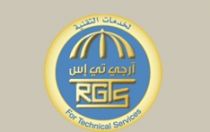To Educate the DoD Facilities Community, the Whole Building Design Guide Will Add “Knowledge” Resources and Sophisticated Training Modules to Its Corrosion Prevention Codes, Criteria, and Best Practices
With support from the DoD Corrosion Policy and Oversight Office, the WBDG–Whole Building Design Guide®, found at www.wbdg.org, has published new informational content to help facilities experts stay current on best practices in corrosion prevention and mitigation.
A program of the National Institute of Building Sciences, the WBDG is a far-reaching, Web-based reference portal that provides government and industry experts with easy access to facilities and infrastructure-related guidance, criteria, training, and technology.
The newly published WBDG Corrosion Prevention & Control (CPC) Source “knowledge” pages address CPC issues and challenges related to a) facilities planning, b) sustainment, restoration, and modernization, competencies, acquisition issues, cost of corrosion, and environmental severity. The pages address the scientific areas of Cathodic Protection, Corrosion Science, Paint and Coatings, Pavements, and Waterfront and Coastal Structures.
Over the next year, the WBDG CPC Source will be enhanced by eight new training modules, which will supplement five 15-30-minute training vignettes that are currently available at http://www.wbdg.org/ffc/dod/cpc-source/training#tv. The DoD Corrosion Office expects to post its first Cathodic Protection course using narration in December 2017. In addition, the Corrosion Office plans to publish narrated courses on Utilities, Waterfront and Coatings on WBDG.org by March 2018.
The new content and training are customized for facilities planners, designers, constructors, and maintainers, while supplementing the site’s other corrosion-related knowledge, codes, guidelines, criteria, best practices, and training material. J. Clay Dean, P.E. and Stephen Geusic, analysts in the DoD Corrosion Policy and Oversight Office, are overseeing the new content production.
Dean explained that “knowledge pages” are designed to provide a just-in-time focus on critical high-cost facilities areas. They provide short oversight and assistance for the designer and engineer who may need help on DoD projects and issues. “For those who design and construct DoD facilities and infrastructure, locating the proper CPC guidance can be very complicated,” he said.
“The incorporation of 10 new knowledge pages and eight multi-part training courses will greatly enhance the Whole Building Design Guide’s existing CPC Source. These additions will ensure that building experts at every level are prepared to make good design decisions that promote and sustain long building life,” said DoD Corrosion Office Director Daniel Dunmire.
The WBDG Web site is available free to the building community with the support of the Department of Defense, the General Services Administration, the Department of Veterans Affairs, NASA, and the Department of Energy. The site also hosts more than 100 free online continuing education courses, including many from the Federal Energy Management Program. To learn more, visit www.wbdg.org.
The National Institute of Building Sciences, authorized by Congress in 1974, is a nonprofit, nongovernmental organization that brings together representatives of government, the professions, industry, labor and consumer interests to identify and resolve building process and facility performance problems. The Institute serves as an authoritative source of advice for both the private and public sectors with respect to the use of building science and technology. For more information, visit www.nibs.org.
The DoD Corrosion Policy and Oversight Office develops and recommends policy guidance on corrosion prevention and control (CPC) for the DoD, while also coordinating CPC activities among the armed services and providing guidance for improving corrosion maintenance and training, among other mission-critical activities. For more information, visit www.CorrDefense.org.
View source version on businesswire.com: http://www.businesswire.com/news/home/20171116005492/en/




